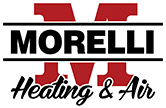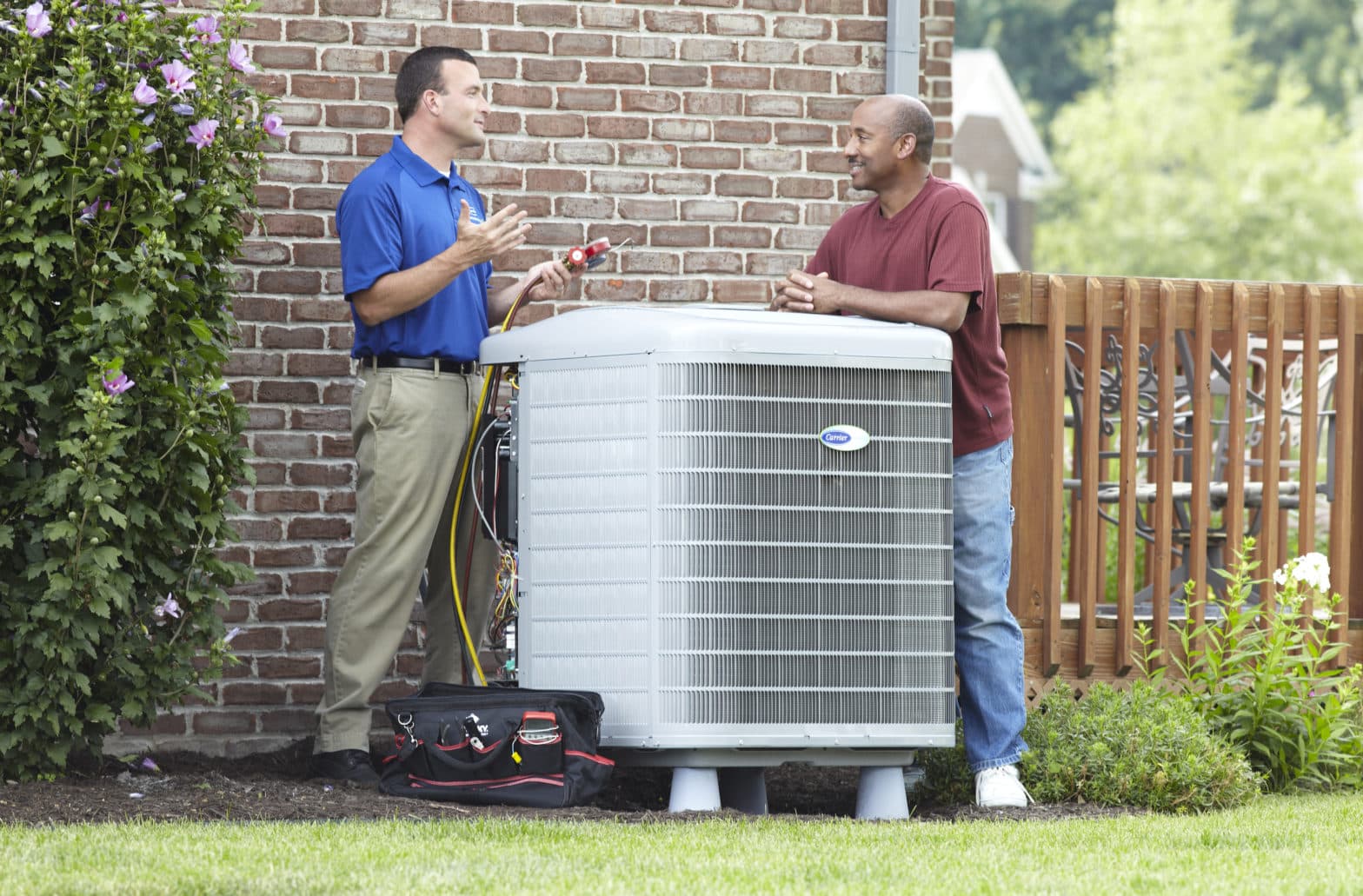Heating, Ventilation, and Air Conditioning (HVAC) are all the components that make up your HVAC system. US News informs readers that it is the system that “regulates and moves heated and cooled air throughout residential and commercial buildings” and filters out stale air within your home. Additionally, an HVAC system that’s working well can regulate the humidity within your home and remove dust, allergens, “bacteria, spores, and virus-sized particles!”
Your HVAC system can be made up of a heating system, cooling system, heat pump, and air duct system all controlled by your thermostat. You can also have whole-home humidifiers and dehumidifiers installed to help regulate the humidity within your home!
If you’re considering replacing any of these systems, we have some tips for you to consider before you get started!
10 things to consider when you replace your HVAC system
HVAC systems, like everything else, aren’t made to last forever. Whether you’re current home needs maintenance, you recently purchased a fixer-upper, or you’re getting ready to sell your home, you might be thinking about replacing the HVAC system! Replacing your HVAC system can cost anywhere from $3200-$12500 (Modernize), so there are some things we advise you to consider when you decide to replace it:
1. What’s your budget
Before anything can happen, you need to figure out how much money you have to spend on this project and how much money it will cost to make the necessary replacements. Modernize informs readers that you can receive a quote from a reputable HVAC contractor that will give you a pretty good idea of this figure. Things they’ll consider include:
- The square footage of your home
- The size of the property
- The climate of your home
- The ability to retain cold/warm air
On top of cleaning out the ductwork and replacing your furnace or air conditioner, they may also recommend sealing off areas prone to drafts and resealing doors and windows to help increase the efficiency of your HVAC system!
2. How much value it will add to your home
Not only can a new HVAC system increase the value of your home when it’s time to sell (around a 10% increase), but it can also help you save money on your energy bill in the long run, according to Home Depot. For instance, a furnace or A/C unit that’s running often because it isn’t running efficiently will cause your gas and electricity bill to spike due to overuse.
Additionally, based on how much money it can add to the value of your home, you can compare it to how much money it will cost you to make the necessary replacements and decide if it’s worth the investment in the long run!
3. Who is the right HVAC contractor for the project
After you’ve determined your budget, it’s time to find and hire your contractor to complete the job! We recommend meeting with different contractors and allowing them to inspect your space and give you a quote before selecting the one to do the job. Additionally, ensure they have the necessary HVAC license and insurance. Once you decide which HVAC contractor to go with, ensure that their estimate is dated and signed and covers all areas of the replacement job!
Here are some helpful tips for finding the right HVAC contractor for you!
4. Consider the entire system when making updates
In order to maintain efficiency throughout your HVAC system, you may want to consider replacing the A/C unit and the furnace at the same time. While this may cost you more money right away, it can save you a lot of money over the next 10+ years by heating and cooling your home more efficiently and cost-effectively. In addition to replacing the units, it’s also important to have your ductwork inspected to ensure nothing needs to be cleaned out, repaired, or replaced!
5. What needs to be replaced and what needs to be fixed
If you find it’s out of your budget to replace everything, consider the systems that just need to be fixed rather than replaced. Common things that need to be replaced include “fans, freon, filters, thermostats, intermittent pilot, [and] hot surface ignition mechanical parts.”
In order to determine whether you should replace or repair, it’s recommended that you weigh the cost to fix against the cost to replace. If you find that the cost to fix is going to be more than half of the cost to replace, it’s recommended that you simply replace the unit. Another helpful tool is to multiply the “estimated cost of repair” by the age of the system. If the number you calculated is greater than $5,000, it might be best to make the replacement.
Other signs it’s time for a replacement include:
- Increase in energy bills
- High humidity within your home
- Excessive dust particles in the air
- “Hot or cold spots in your home”
6. Consider the age of the system
Units that are older than 10 years may no longer be working as efficiently as it once was or when compared to newer units. Their warranty may have also expired, making the cost to repair or replace them more expensive than they’re worth and entirely out-of-pocket. Additionally, you’ll find that units older than 10 years are no longer going to be dependable, meaning they may go out when you need them the most.
Finally, newer systems will take a “non-ozone-depleting refrigerant” whereas older ones will take R-22, which is becoming harder and harder to come by. If this sounds like your system or unit, then it might be worth the expense to make the necessary replacements!
7. You’re installing the correct HVAC system size
Square footage and climate are both taken into consideration when determining what tonnage coverage you will need to heat, cool, and filter the air in your home. “Purchasing a unit that is too large or too small for the square footage of your home or business is not energy efficient, which results in higher utility bills.” So, it’s important that you do the necessary research before purchasing any new units for your home!
8. Cost-effective updates
Making cost-effective updates means that you might have to spend more money upfront, but it will help save you money in the long run and increase the comfort of your home. Great upgrades to consider include:
- HEPA filters for better air quality and fewer allergens
- Purchase and install a programmable thermostat to efficiently heat and cool throughout the day and night
- Ensure your home is properly insulated
9. Preparation time for the project
Replacing your HVAC system can take anywhere from a few hours to a few days! To save time, make sure the area your contractor will be working in is ready and clear, and that any antiques and valuables that could be broken or damaged are removed. Additionally, ensuring that pets and children are away from the home or area will help the process go quicker, too!
10. Any unforeseen events
With any project, unexpected costs can pop up. This can include things like “replacing damaged ductwork, rotten wall studs, electrical upgrades, and drywall repairs” that you didn’t see in the original estimate. Ensuring that you work these costs into your budget will help you keep up with any unforeseen expenses if and when they arise!
If you’ve been thinking about replacing your HVAC system, we hope these tips will help guide you clearly through your renovation project. Contact us for more information regarding your HVAC system or if you would like a quote on a system replacement!









Excellent! Please Rate us 5-stars
...and leave a helpful review.
Would you recommend Morelli Heating and Air?